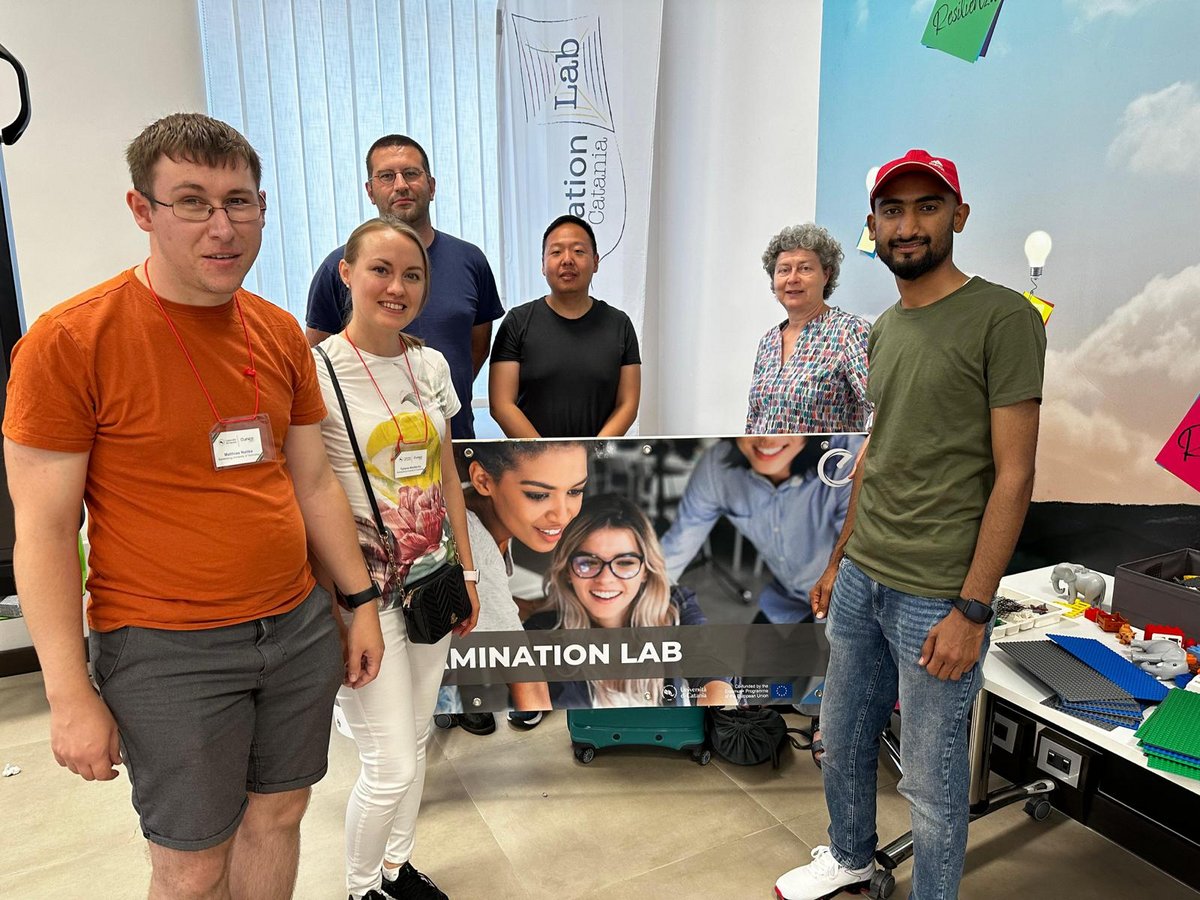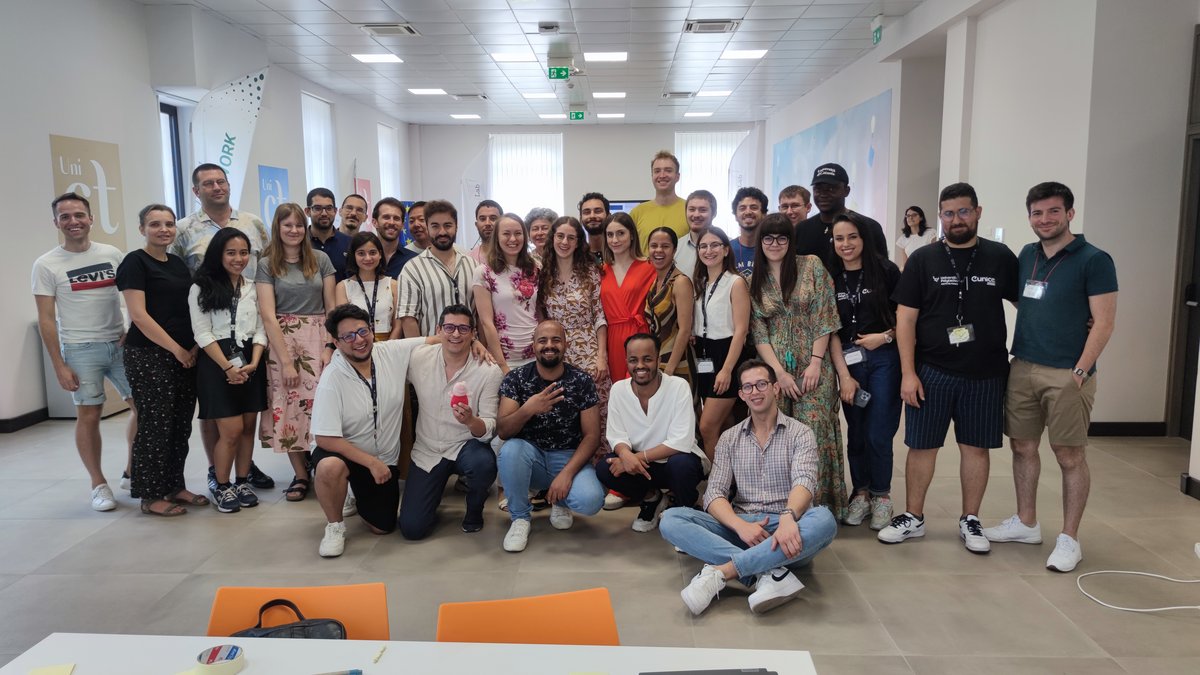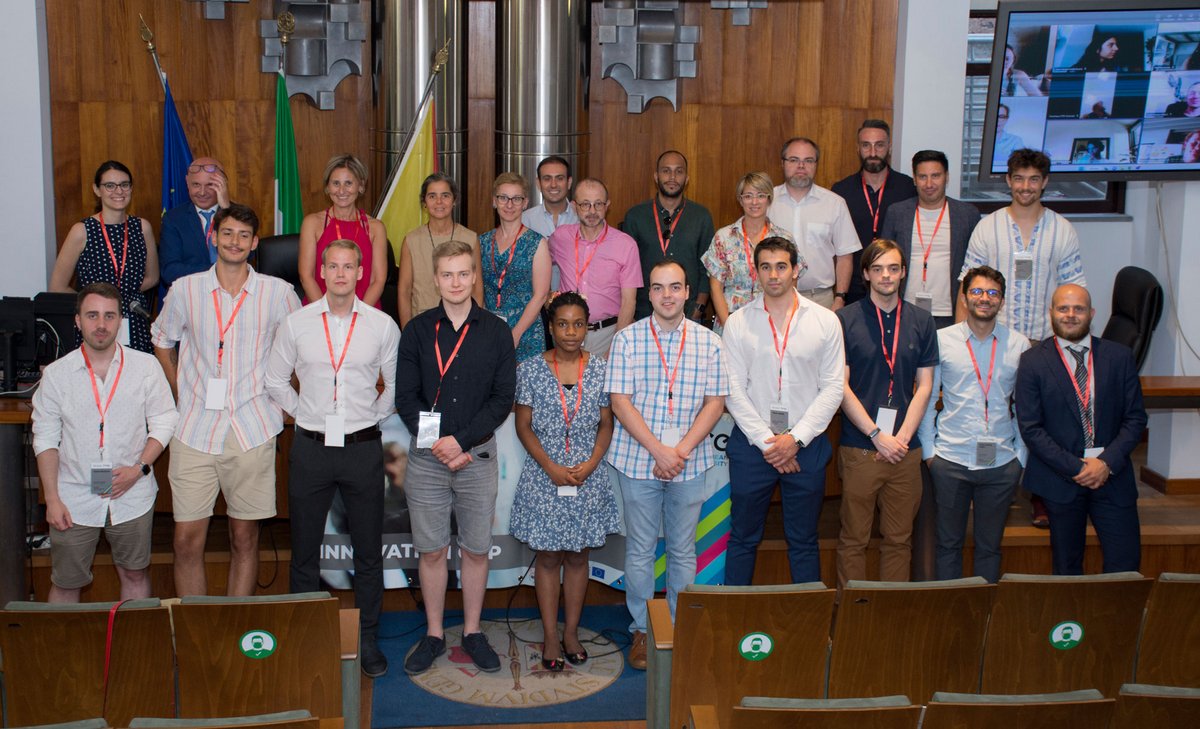European final in Italy: BTU students with start-up ideas
Not one but two founding events were organized in July by EUNICE, the European University for Tailored Education, and hosted by the University of Catania.
EUNICE Imagine Innovation Cup
Excited but full of positive energy, Team Modeck presented itself in front of the screen camera on July 18, 2023 for the final of the EUNICE Imagine Innovation Cup. Due to strikes and a fire at the airport in Catania, the BTU delegation was denied travel to Italy and participation in the finals was only possible online.
The students had ten minutes to convince the jury of academic and industrial experts of the merits of their product. Despite the virtual transmission, the presenters mastered the jury's question and answer session with aplomb and were able to compete in the final with good ratings.
During the finals, the three student speakers Max, Mattis and Johanna were supervised by Sinikka Treuger (Operative Project Manager) and Anke Donnerstag (Head of Creative Promotion) from COLab Cottbus.
The German team of Max Auras, Mattis Kramp, Johanna Stepanek, Bjoern Weber and Thomas Tuturea, developed the modular pot lid "Multideck", which fits on every pot and pan, as part of the FÜS module "Durchstarten - Schlüsselqualifikation für deine Idee" in November 2022. The innovation product is equipped with various attachments that, for example, make stirring easier or monitor cooking time. Team Modeck emerged as the winner of the FÜS module and was allowed to compete against the favorites from the other partner universities in the finals. The final winner was Team Sense, with a health monitoring system for the elderly and people in need of care (University of Cantabria, Spain). At the event, the Rector of the University of Catania, Francesco Priolo, expressed his satisfaction with the quality of the projects presented: "For me, they all won," he said.
EUNICE Contamination Lab - Summer School
Barring any extraordinary force majeure events, three more BTU students enjoyed mobility to Italy. Tatiana Kholiavko (Team Tainy Design), Burhan Ahmad (Team Room4Me) and Matthias Nattke (Team Hawk) achieved excellent results in the EUNICE Contamination Lab. They managed to convince the jury of the online start-up workshop of their ideas and thus qualified for a Summer School in Catania.
For five days, from July 10 to 14, the participants from all partner universities were able to work on their ideas together on site. Helpful knowledge for this was imparted by numerous experience workshops based on the LEGO® SERIOUS PLAY® method. In addition to conceptual advice, the students were given practical tools for the further development of their innovative product. On the last day of the Italian Summer School inspiring examples of innovations from the corporate and start-up world were presented. The cultural highlight was the joint excursion to Mount Etna.
The student start-up ideas originated in the online seminar "EUNICE Contamination Lab". In ten modules, the participants learned everything they needed to know about finding ideas, the business plan, soft skills, and preparing for the elevator pitch. With this know-how in hand, the students developed their own idea in interdisciplinary and multicultural teams and gained a lot of practical experience in turning it into a viable project. They received professional support from mentors from within the university and from external companies. At BTU, the format is supported by Prof. Dr. Magdalena Mißler-Behr, Dr. Viktor Zakar, Cheng-Wen Jaw, Julia Braun and Kirill Sarachuk from the Chair of ABWL, in particular Planning, Innovation and Founding.
"On the one hand, the students were able to develop their start-up ideas in an international environment, deal with the finances of the venture and learn pitch techniques. This directly funds the entrepreneurial spirit. On the other hand, ECLAB made it possible to participate in the summer school in Catania (10-14.07.2023), which is an additional training for young academics. For us as lecturers of the Chair of ABWL, esp. Planning, Innovation and Founding as well as of the Founders' Service of BTU Cottbus-Senftenberg, the project brought valuable experiences and new acquaintances at six other universities, which can lead to new collaborations. We are happy to have been part of this first EUNICE Contamination Lab", says the Head of the Founders' Service of BTU Cottbus-Senftenberg Dr. Viktor Zakar.
The participants learned a lot during the intensive week and draw a consistently positive summary. Tatiana Kholiavko (BTU) found the Summer Schhol very enriching and reported on "interdisciplinary workshops LEGO®️ SERIOUS PLAY®️, ECOISM in the world of work, processes for joint decision-making and sustainability in companies. In the middle of the Italian cultural site of Catania, we learned to solve complex problems together with Communication Coaches and CEOs and to accompany the transformation in the world of work in these ways. In an international environment, intercultural teams were formed in the workshops and through the cultural, culinary journey."
More information about EUNICE's extensive program is available on the BTU's EUNICE website or the Alliance website .
Those who don't want to miss any information from EUNICE can register for the EUNICE newsletter.
Background:
EUNICE (European University for Customised Education), these are universities from different European countries with a common DNA: all universities are medium-sized and strongly anchored locally, they are in a process of structural change and students are the focus of interest everywhere. Tailor-made course offerings are created for these very students in order to prepare them in the best possible way for the European job market. The alliance is supported by ten universities: Poznań University of Technology (Poland), Brandenburg University of Technology Cottbus-Senftenberg (Germany), University of Cantabria (Spain), University of Mons (Belgium), University of Catania (Italy), Université Polytechnique Hauts-de-France (France), University of Vaasa (Finland), Polytechnic Institute Viseu (Portugal), University of Peloponnese (Greece) and Karlstad University (Sweden).



